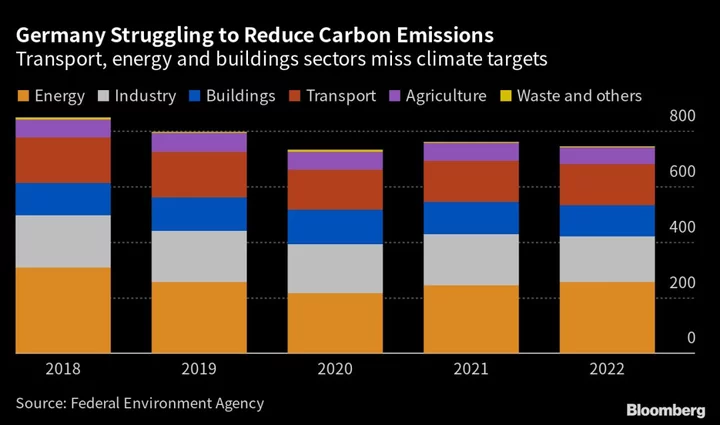The Biden administration is planning to step up the US government’s policing of an opaque market in biofuel compliance credits, following long-running complaints of wild price swings and manipulation.
The Environmental Protection Agency laid out plans for extra scrutiny in collaboration with US financial regulators as part of a renewable fuel quota plan released Wednesday. The EPA also raised the specter of adjusting US biofuel-blending requirements if it sees signs of market manipulation or excessive volatility in tradeable credits known as renewable identification numbers that track compliance with the quotas.
“We take seriously claims of RIN market manipulation,” the EPA said in its rule, noting that since the implementation of stronger disclosure requirements four years ago, the agency has not seen data-based evidence of the activity. “The potential for such behavior, however, remains a concern.”
The moves represent the latest effort to address allegations of market manipulation, volatility and fraud around an 18-year-old mandate that compels refiners to blend corn-based ethanol, soy-based biodiesel and other renewable fuels into their products.
The EPA said it was committing to meet with the Commodity Futures Trading Commission within 45 days to discuss potential monitoring of daily credit trades and possibly recruiting more help from the Federal Trade Commission.
Read More: The Fake Biofuel Factory That Pumped Out Real Money But No Fuel
The EPA also will employ a new volatility threshold to monitor the price of those RINs and identify potential changes to the biofuel program as well as its annual quotas. The agency said it would watch for swings in the price of RINs tracking ethanol consumption that exceed 50% of the six-month rolling average — and how they overlap with possible intervening policy moves or court decisions.
The government created RINs to give fuel refiners and importers more flexibility in satisfying biofuel-blending quotas — though the credits have morphed from a pure compliance tool to more of a financial commodity, with values that often swing in tandem with policy news from Washington.
The new oversight push falls short of calls for tighter RIN trading restrictions and a FTC investigation. The EPA in 2019 mandated public disclosure of some renewable fuel credit holdings while foregoing broader proposed steps steps to stamp out potential abuse — including position limits and barring trades by some parties.
(Updates with details from EPA regulation from second paragraph.)
Author: Jennifer A. Dlouhy and Jennifer Jacobs









